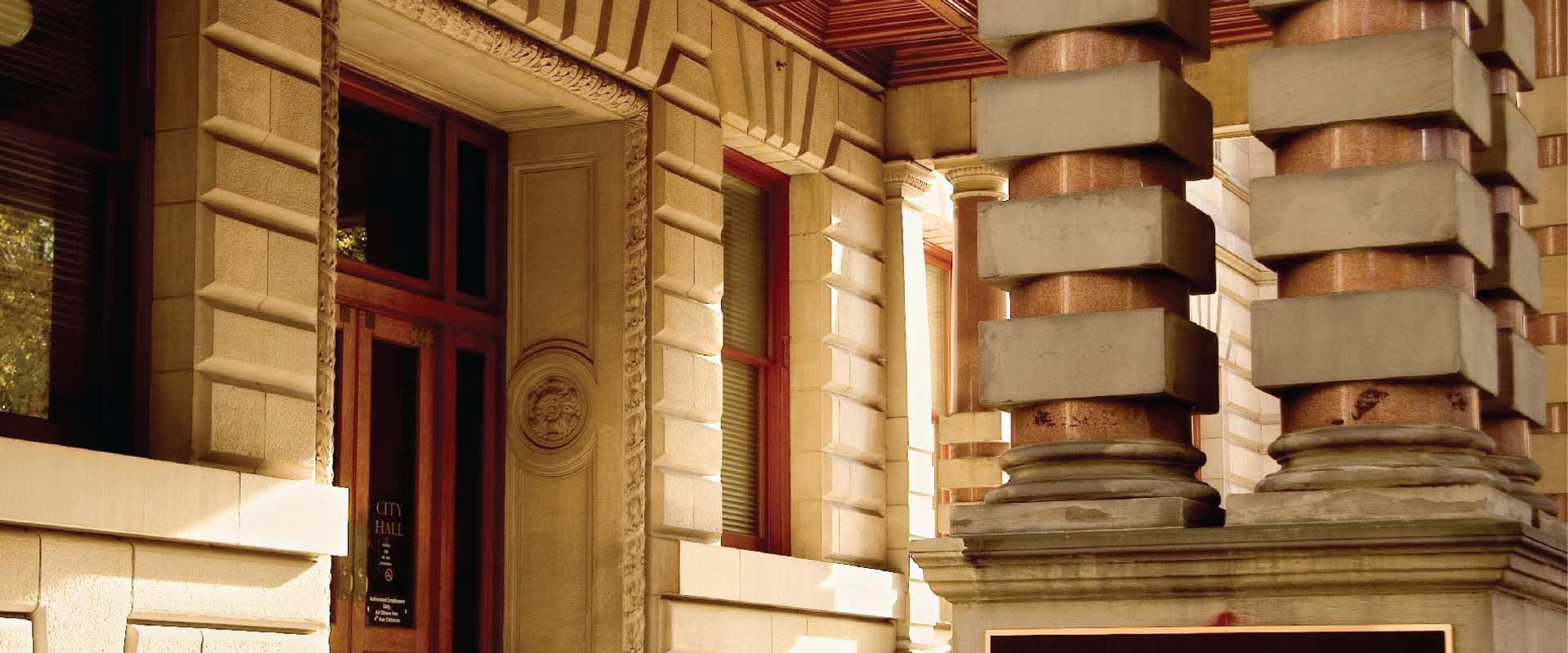Supreme Court Issues A Ruling Regarding The Statute Of Limitations For Claims Of Disparate Impact Discrimination In Employment

July 2010
Number 31
CLIENT NEWS BRIEF
SUPREME COURT ISSUES A RULING REGARDING THE
STATUTE OF LIMITATIONS FOR CLAIMS OF DISPARATE
IMPACT DISCRIMINATION IN EMPLOYMENT
Title VII of the Civil Rights Act of 1964 ("Title VII") bars employment actions that have a
"disparate impact" on a protected group, such as African-Americans. The United States
Supreme Court recently held that a plaintiff may assert a claim of disparate impact
discrimination by filing a timely claim challenging the employer's application, rather
than adoption, of an employment practice, as long as the plaintiff alleges each of the
elements of a disparate impact claim. (Lewis v. City of Chicago (2010) 560 U. S. ___.)
In July 1995, the City of Chicago ("City") administered an examination to applicants
seeking a position with the fire department. In January 1996, the City announced that
the hiring process would begin with those who scored above 89 on the test. In May and
October of 1996, the City implemented the new hiring process. Applicants who scored
between 65 and 89 were informed that they had passed the examination and were
therefore "qualified", but, based on the City's projected hiring needs and the number of
applicants scoring above 89, they would not likely be called for further processing. The
City kept each "qualified" applicant's name on the eligibility list for approximately the
next six years.
To preserve a claim for discrimination under Title VII, the aggrieved party must file
charges within 300 days after the discriminatory action by an employer. (42 U.S.C. �
2000e-5(e)(1).) In March 1997, an African-American applicant, who scored in the
"qualified" range and was not hired as a candidate firefighter, filed a discrimination
claim with the Equal Employment Opportunity Commission ("EEOC"), followed by other
candidates who filed in subsequent months. The applicants then filed a civil action
against the City, alleging that its practice of selecting only applicants who scored 89 or
above to advance resulted in a disparate impact on African-Americans in violation of
Title VII.
Page 60
As the information contained herein is necessarily general, its application to a particular set of facts
and circumstances may vary. For this reason, this News Brief does not constitute legal advice. We
recommend that you consult with your counsel prior to acting on the information contained herein.
Written by:
July 2010
Number 31
CLIENT NEWS BRIEF
The City argued that the only possible discriminatory act in this case was sorting the scores,
which meant that the plaintiffs were required to file their claims with the EEOC no later than 300
days after the sorting occurred in January 1996. A federal District Court ruled in favor of the
plaintiffs; however, the federal Seventh Circuit Court of Appeal reversed the decision, holding
that the lawsuit was untimely because the EEOC claim was filed more than 300 days after the
allegedly discriminatory act of sorting the scores. The Supreme Court disagreed and held that a
new claim could arise from the subsequent use of the discriminatory employment practice.
The Supreme Court stated that a plaintiff can establish a disparate impact claim by showing
that the employer uses an employment practice that causes a disparate impact on one of the
prohibited bases of discrimination. (42 U.S.C. � 2000e-2(k)(1)(A)(i).) Here, the court determined
that the plaintiffs' claim was not barred by the 300-day time limit, because each time the City
used the eligibility list (employing the score cut-off) to fill firefighter positions, it was applying an
employment practice that caused a disparate impact on a protected class of individuals. The
court held that the firefighter candidates' claim was cognizable and reversed and remanded
the matter back to the Seventh Circuit Court of Appeals.
This case demonstrates that the Supreme Court has moved toward a broader view of
discriminatory impact law. Each time a discriminatory policy is implemented, the timeline for a
new cause of action may begin. Thus, employers should review and replace old policies still in
use that may have a discriminatory impact, or remain potentially liable for discrimination claims
filed years after the policy was initially put into effect.
For further information or if you have any questions concerning employment discrimination
issues, please do not hesitate to contact one of our seven offices located statewide or consult
our website.
Mark K. Kitabayashi
Senior Counsel
Los Angeles Office
mkitabayashi@lozanosmith.com
Sarah Kalas Bancroft
Associate
Walnut Creek Office
sbancroft@lozanosmith.com
� 2010 Lozano Smith Page 61
Number 31
CLIENT NEWS BRIEF
SUPREME COURT ISSUES A RULING REGARDING THE
STATUTE OF LIMITATIONS FOR CLAIMS OF DISPARATE
IMPACT DISCRIMINATION IN EMPLOYMENT
Title VII of the Civil Rights Act of 1964 ("Title VII") bars employment actions that have a
"disparate impact" on a protected group, such as African-Americans. The United States
Supreme Court recently held that a plaintiff may assert a claim of disparate impact
discrimination by filing a timely claim challenging the employer's application, rather
than adoption, of an employment practice, as long as the plaintiff alleges each of the
elements of a disparate impact claim. (Lewis v. City of Chicago (2010) 560 U. S. ___.)
In July 1995, the City of Chicago ("City") administered an examination to applicants
seeking a position with the fire department. In January 1996, the City announced that
the hiring process would begin with those who scored above 89 on the test. In May and
October of 1996, the City implemented the new hiring process. Applicants who scored
between 65 and 89 were informed that they had passed the examination and were
therefore "qualified", but, based on the City's projected hiring needs and the number of
applicants scoring above 89, they would not likely be called for further processing. The
City kept each "qualified" applicant's name on the eligibility list for approximately the
next six years.
To preserve a claim for discrimination under Title VII, the aggrieved party must file
charges within 300 days after the discriminatory action by an employer. (42 U.S.C. �
2000e-5(e)(1).) In March 1997, an African-American applicant, who scored in the
"qualified" range and was not hired as a candidate firefighter, filed a discrimination
claim with the Equal Employment Opportunity Commission ("EEOC"), followed by other
candidates who filed in subsequent months. The applicants then filed a civil action
against the City, alleging that its practice of selecting only applicants who scored 89 or
above to advance resulted in a disparate impact on African-Americans in violation of
Title VII.
Page 60
As the information contained herein is necessarily general, its application to a particular set of facts
and circumstances may vary. For this reason, this News Brief does not constitute legal advice. We
recommend that you consult with your counsel prior to acting on the information contained herein.
Written by:
July 2010
Number 31
CLIENT NEWS BRIEF
The City argued that the only possible discriminatory act in this case was sorting the scores,
which meant that the plaintiffs were required to file their claims with the EEOC no later than 300
days after the sorting occurred in January 1996. A federal District Court ruled in favor of the
plaintiffs; however, the federal Seventh Circuit Court of Appeal reversed the decision, holding
that the lawsuit was untimely because the EEOC claim was filed more than 300 days after the
allegedly discriminatory act of sorting the scores. The Supreme Court disagreed and held that a
new claim could arise from the subsequent use of the discriminatory employment practice.
The Supreme Court stated that a plaintiff can establish a disparate impact claim by showing
that the employer uses an employment practice that causes a disparate impact on one of the
prohibited bases of discrimination. (42 U.S.C. � 2000e-2(k)(1)(A)(i).) Here, the court determined
that the plaintiffs' claim was not barred by the 300-day time limit, because each time the City
used the eligibility list (employing the score cut-off) to fill firefighter positions, it was applying an
employment practice that caused a disparate impact on a protected class of individuals. The
court held that the firefighter candidates' claim was cognizable and reversed and remanded
the matter back to the Seventh Circuit Court of Appeals.
This case demonstrates that the Supreme Court has moved toward a broader view of
discriminatory impact law. Each time a discriminatory policy is implemented, the timeline for a
new cause of action may begin. Thus, employers should review and replace old policies still in
use that may have a discriminatory impact, or remain potentially liable for discrimination claims
filed years after the policy was initially put into effect.
For further information or if you have any questions concerning employment discrimination
issues, please do not hesitate to contact one of our seven offices located statewide or consult
our website.
Mark K. Kitabayashi
Senior Counsel
Los Angeles Office
mkitabayashi@lozanosmith.com
Sarah Kalas Bancroft
Associate
Walnut Creek Office
sbancroft@lozanosmith.com
� 2010 Lozano Smith Page 61
As the information contained herein is necessarily general, its application to a particular set of facts and circumstances may vary. For this reason, this News Brief does not constitute legal advice. We recommend that you consult with your counsel prior to acting on the information contained herein.





